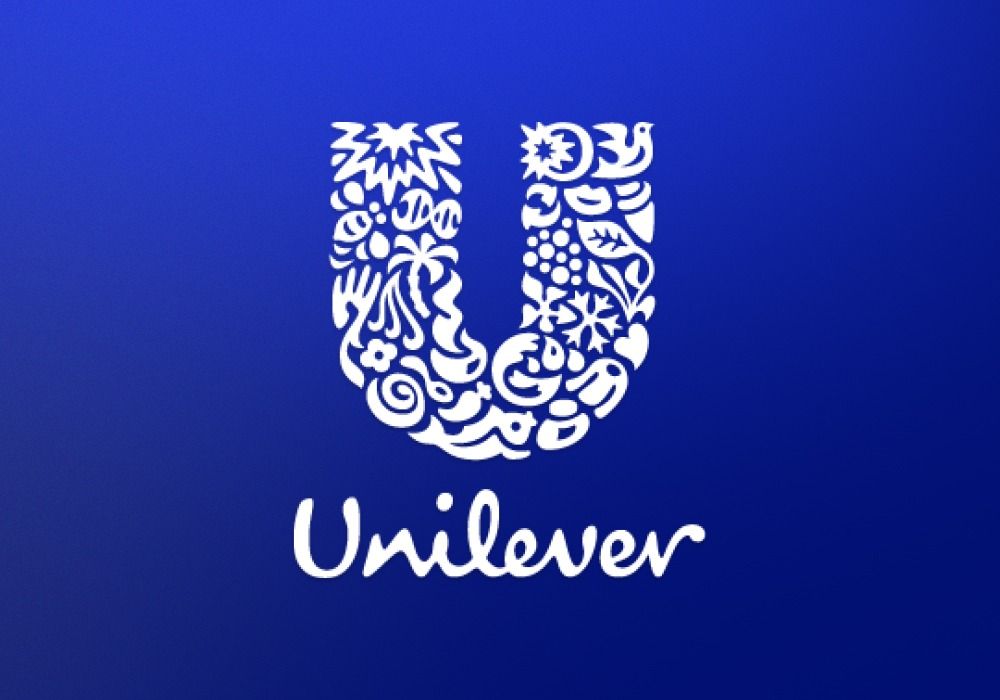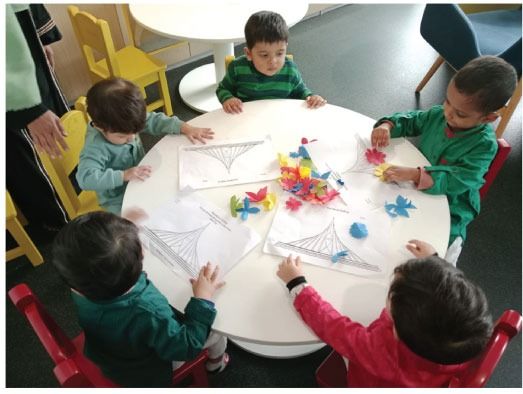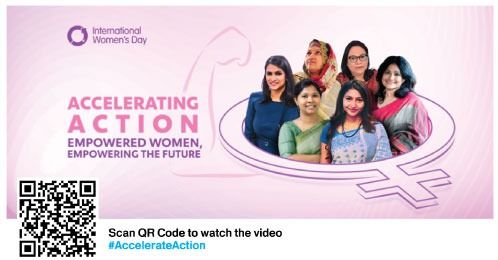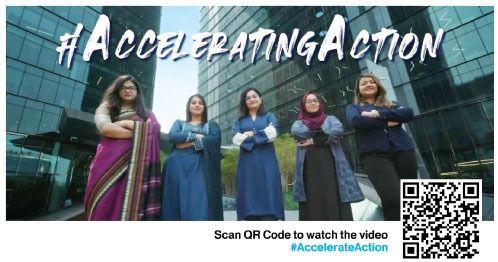- info@ficci.org.bd
- |
- +880248814801, +880248814802
- Contact Us
- |
- Become a Member
- |
- |
- |
- |
- |

In today's global economy, gender equity is not only a moral imperative-it is a strategic business advantage. At Unilever Bangladesh, the commitment to Equity, Diversity, and Inclusion (EDI) is more than corporate rhetoric. It reflects a purposeful transformation that has redefined organisational culture, empowered the workforce, and set new benchmarks for the industry. The company is steadfast in its vision of building a workplace where every individual thrives-regardless of gender-contributing uniquely to innovation and sustainable growth.
Progress Rooted in Purpose
Unilever Bangladesh's journey towards gender equity is marked by consistent, measurable progress. They have achieved a remarkable stride in female representation in the senior management, increasing from a modest 13% in 2019 to an impressive 40% in 2025, which was also 50% in 2023. By appointing the first female Finance Director, Regional Manager, and Logistics Manager, they have systematically dismantled traditional industry barriers. This transformation is a result of committed leadership, strategic talent development, progressive policies, and an inclusive workplace culture.
Creating Equitable Workplaces through Inclusive Policies and Infrastructure
The company is unwavering in its mission to build an equitable workforce that respects the dignity and potential of every individual. Guided by the belief that no woman should be left behind, Unilever Bangladesh is embedding gender inclusion across its operations, value chain, and broader societal engagement. Their approach begins with a commitment to get their own house in order-ensuring internal practices reflect the change they wish to see externally.
 To address historical imbalances, the company maintains a 70:30 female-to-male candidate ratio in entry-level recruitment process. Beyond offices, targeted invest- ments are being made to increase women's representation in field sales and factory roles-areas traditionally dominated by men. Today, nearly 200 women work within the distribution force, and over 15% of manageri- al roles in sales are held by women. To support this progress, female territory managers are provided with structured assistance, including coordination with local law enforcement and dedicated security support. In manufacturing, over 250 women are employed on the shop floor in their oldest establishment, the Kalurghat Factory (KGF) in Chattogram. Notably, in 2017, Unilever Bangladesh led the way in
To address historical imbalances, the company maintains a 70:30 female-to-male candidate ratio in entry-level recruitment process. Beyond offices, targeted invest- ments are being made to increase women's representation in field sales and factory roles-areas traditionally dominated by men. Today, nearly 200 women work within the distribution force, and over 15% of manageri- al roles in sales are held by women. To support this progress, female territory managers are provided with structured assistance, including coordination with local law enforcement and dedicated security support. In manufacturing, over 250 women are employed on the shop floor in their oldest establishment, the Kalurghat Factory (KGF) in Chattogram. Notably, in 2017, Unilever Bangladesh led the way in
South Asia by appointing female production shift officers for night operations-challenging longstanding cultural norms about women working late hours. These bold actions have significantly advanced gender diversity across functions and levels.
Institutionalising Inclusion: Systems That Support Gender Equity
Unilever Bangladesh's ED&I Council, comprising both male and female leaders, drives organisation-wide awareness and participation. Strategic partnerships with like-minded organisations facilitate learning exchanges and collabora- tive initiatives on diversity challenges. Their comprehensive policy framework includes robust Prevention of Sexual Harassment (POSH) protocols, industry-leading maternity and paternity leave provisions, education assistance programmes, career break options, caregiver support services, and flexible working arrangements.
Both corporate offices and factories are equipped with daycare centres, each offering specialised early childhood development programmes-ensuring working parents are fully supported in balancing their professional and personal responsibilities.

Championing Leadership in Gender Inclusion
At the heart of Unilever Bangladesh's efforts is a leadership team that actively champions gender inclusion. Personalised talent development plans and structured mentoring programmes empower high-potential female employees to grow into leadership roles.
Beyond internal initiatives, the company leverages the power of storytelling to inspire change. Stories of their women leaders-shared across internal channels and external platforms-help challenge industry stereotypes and attract diverse talent. These campaigns serve not just to celebrate achievements, but to shift mindsets and redefine what leadership looks like.
International Women's Day 2025: A Two-Fold Commitment to Collective Action
This year, Unilever Bangladesh reaffirmed its leadership in gender equity through an impactful two-fold International Women's Day campaign - "AcceleratingAction: Empowered Women, Empowering the Future". Acknowledging that the journey towards true equity requires collective action, the campaign extended beyond the company's own workforce to include partner organisations.
In the first phase, the company spotlighted inspiring stories of female leaders from partner organisations- amplifying voices that can motivate and mentor young leaders across industries. This initiative underscored Unilever Bangladesh's belief that gender equity is not just an internal commitment, but a shared value that shapes how they collaborate across the ecosystem.

The second phase focused inward, celebrating the stories of women within Unilever Bangladesh who are defying stereotypes and overcoming barriers in male-dominated roles. Their resilience, ambition, and achievements reflect the power of a workplace culture where inclusion is embedded and practiced every day.

From Balance to Belonging: Redefining Success
Unilever Bangladesh's commitment goes beyond achieving gender balance. The goal is to cultivate a truly inclusive environment where diverse perspectives fuel creativity and long-term growth. Recognition as Employer of Choice in the FMCG sector for 12 consecutive years, along with the FICCI DE&I Champion award, reaffirms the company's industry leadership in fostering inclusive workplaces. This transformation is not just about business-it is about shaping a better society. By nurturing leadership, breaking down systemic barriers, and influencing broader norms, Unilever Bangladesh is inspiring a more inclusive business ecosystem for all.
Inspiring Collective Progress
The path to gender equity is not one to be walked alone. Across Bangladesh, many organisations are embracing this vision, working relentlessly to create a more inclusive and equitable society. Unilever Bangladesh stands as a catalyst and collaborator in this journey-proving that when businesses commit to authentic inclusion, the impact extends far beyond the workplace. Together, we can ensure that inclusion is not just a moment we celebrate-but a reality we build, every single day.





